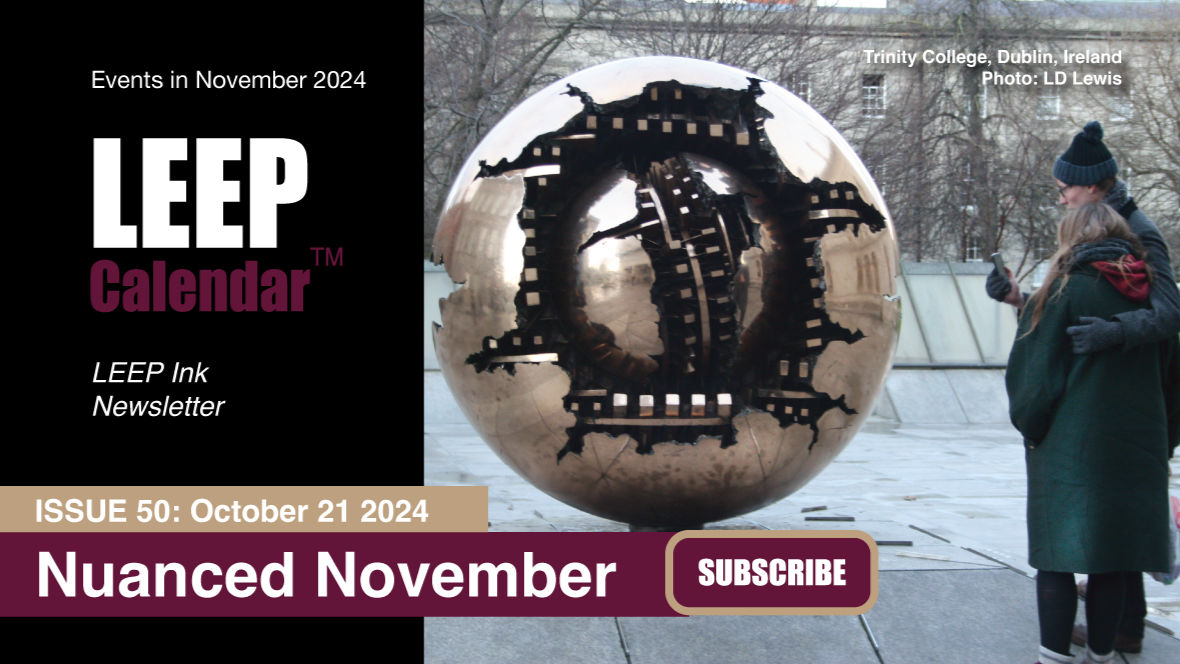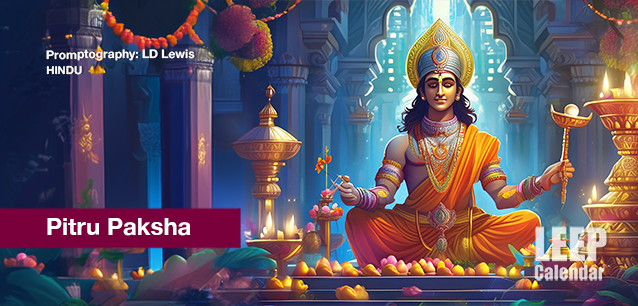 AD
AD
Today is: December 28
Scroll to explore events active on this date.
LEEP INK FEATURES

2025 is the Year of...
21 Themes and 'Year of' Events for 2025 PART ONE, THE FIRST 12 Every year, various organizations announce the theme for the year. These themes can focus on causes, such as aesthetics and color tre...

Nuanced November 2024
November is the start of the holiday season in many parts of the world. It is a time for family, football, food, shopping and decorating, particularly in the Christian and Jewish world, leading to Christmas and...

December's Gift
Events in December 2024. Well, we made it to December. December is the holiday season, particularly in Western nations, where Christianity and Judaism are the faiths most common in the nation's past. ...
About Pitru Paksha
Family & Friends , India
Ends: Sep 20, 2025
DESCRIPTION:
ABOUT THE HINDU OBSERVANCE OF PITRU PAKSHA
Pitru Paksha, a significant fortnight-long observance in Hindu culture, is dedicated to honoring deceased ancestors. This period, also known as Shraddha, involves a series of rituals and offerings to ensure the peace and well-being of departed souls.
Pitru Paksha typically falls in the lunar month of Bhadrapada, usually in September or October. During these 16 days, Hindus perform rituals such as Tarpan (offering water), Pinda Daan (offering rice balls), and feeding Brahmins (priests) and the poor. These customs seek to appease the ancestors' souls, ensuring their blessings for the living family members.
The history of Pitru Paksha is rooted in ancient Hindu texts, including the Mahabharata, which mentions that the great warrior Karna was granted access to the heavenly realms only after performing Shraddha rituals for his ancestors. This practice emphasizes the importance of paying homage to one's forebears in Hindu tradition.
Pitru Paksha holds immense significance in Hindu culture as it strengthens the bond between the living and their ancestors. It is believed that performing these rituals with devotion can mitigate any negative karma passed down through generations and bring prosperity and peace to the family. This underscores the collective responsibility of the living family members to ensure the well-being of their ancestors' souls.
During Pitru Paksha, Hindus revere Yama, the god of death, and the Pitrs, or ancestral spirits. By honoring these deities and performing the prescribed rituals, devotees seek to ensure that their ancestors' souls attain moksha (liberation) and that their lives become blessed with happiness and success.
Pitru Paksha, a deeply respected and widely observed event in Hindu culture, reflects the enduring reverence for ancestors and the profound belief in the cyclical nature of life and death. This belief is a cornerstone of Hindu philosophy and is deeply embedded in the observance of Pitru Paksha.
VIDEOS
SUPPORTING DOCUMENTS
Currently, this event does not have supporting documents.
ADDITIONAL IMAGES
Currently, this event does not have supporting images.
Where would you like to go now?
 AD
AD


/footer-logo.svg)
